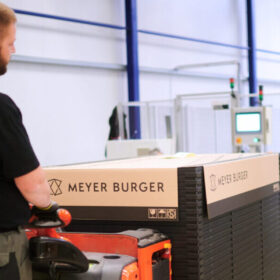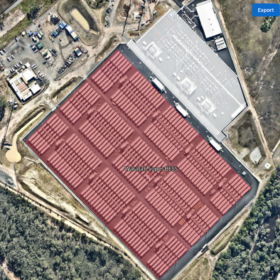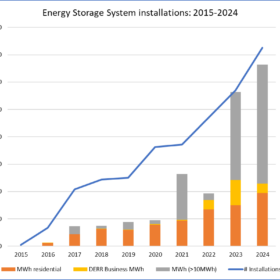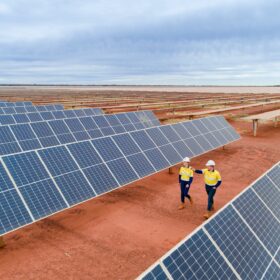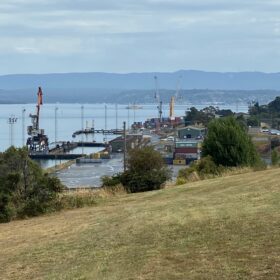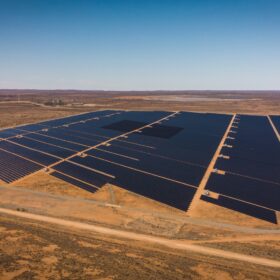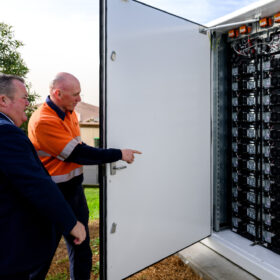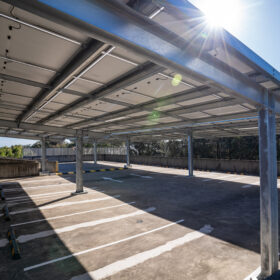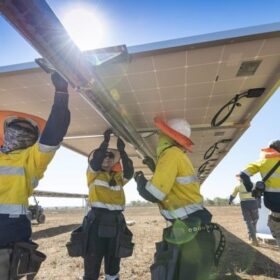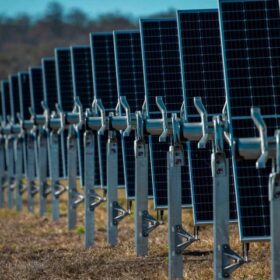Meyer Burger’s German subsidiaries file for insolvency
Swiss solar cell company Meyer Burger said it filed for insolvency for its German subsidiaries, following intensive efforts to keep Meyer Burger Industries GmbH and Meyer Burger Germany GmbH operational.
Project mapping platform adds high-res imagery to mix
Australian renewable energy market intelligence and mapping tool provder RenewMap has partnered with aerial imagery platform Nearmap in a move that provides users with access to the tech company’s high-resolution digitised content.
SunWiz details sharp rise in residential battery install volumes
Australia is on the cusp of a major surge in solar battery adoption with SunWiz forecasting at least 100,000 home energy storage systems with a combined capacity of 1.2 GWh will be rolled out next year, a 38% increase on 2024’s installations.
Fortescue secures state approval for 644 MW solar hub
Mining giant and renewable energy company Fortescue has received the green light from the Western Australian government for a 644 MW solar farm that is to help power its operations in the state’s Pilbara region.
TotalEnergies, RGE to develop solar-plus-storage in Indonesia
TotalEnergies and RGE have signed a co-investment agreement to develop and operate a solar-plus-storage project in Indonesia. The utility-scale plant will be built and managed by Singa Renewables, their equally owned joint venture.
Tasmania taps Powerfuels project to lead Bell Bay Hydrogen Hub
The Tasmanian government has named Abel Energy’s $2 billion Bell Bay Powerfuels project as the lead proponent for the Bell Bay Hydrogen Hub, declaring the decision positions the precinct as a key renewable energy asset.
New contracts to breathe life into mothballed Top End solar farms
Three grid-scale solar farms in the Northern Territory that have been in stasis for five years under the watch of Italian oil major ENI and its subsidiary Plenitude, are being resuscitated by new contracts with Top End retailer Jacana Energy.
Endeavour Energy community battery program switches on two new projects
Two New South Wales community batteries have been switched on in outer western Sydney suburbs, to enable 140 local residents access to renewable energy, whether they have solar or not, are home owners, renters or live in an apartment.
Sydney logistics hub gets 42-space solar powered carport retrofit
Solar racking systems company S-Rack Australia has partnered with national clean energy solutions company Energy Aware to retrofit a multi-storey carpark in Sydney with a 42-space rooftop solar carport.
Clean energy to ignite $36 billion construction boom from 2026
A new report predicts that electricity will become the country’s largest infrastructure investment sector from 2026, driven by a boom in renewable energy construction, with solar construction projected to also peak around $5.7 billion in 2027/28.
